Fiction
Fiction

Empire of the Senseless
Originally published in 1988, Empire of the Senseless marked a turning point in Acker's wild, inimitable style. Considered one of her more accessible works, here Acker candidly addresses her lifelong obsessions: childhood and trauma, language and sexuality, criminality and corruption, oppression and rebellion.
Abhor (part human, part robot) and her lover Thivai (a pirate) traverse Paris in a dystopian future, in search of a mysterious drug that Thivai needs in order to maintain his ability to love. Navigating the chaotic city, they encounter mad doctors, prisoners, bikers, sailors, tattooists, terrorists, and prostitutes, while a band of Algerian revolutionaries take over, and the C.I.A. plots to thwart them all.
Sexually explicit, graphically violent, Empire of the Senseless resists the desensitizing of cultural consciousness and the disintegration of interpersonal communication. A timeless, prescient parable, it speaks profoundly to our social and political history as well as our present reality.
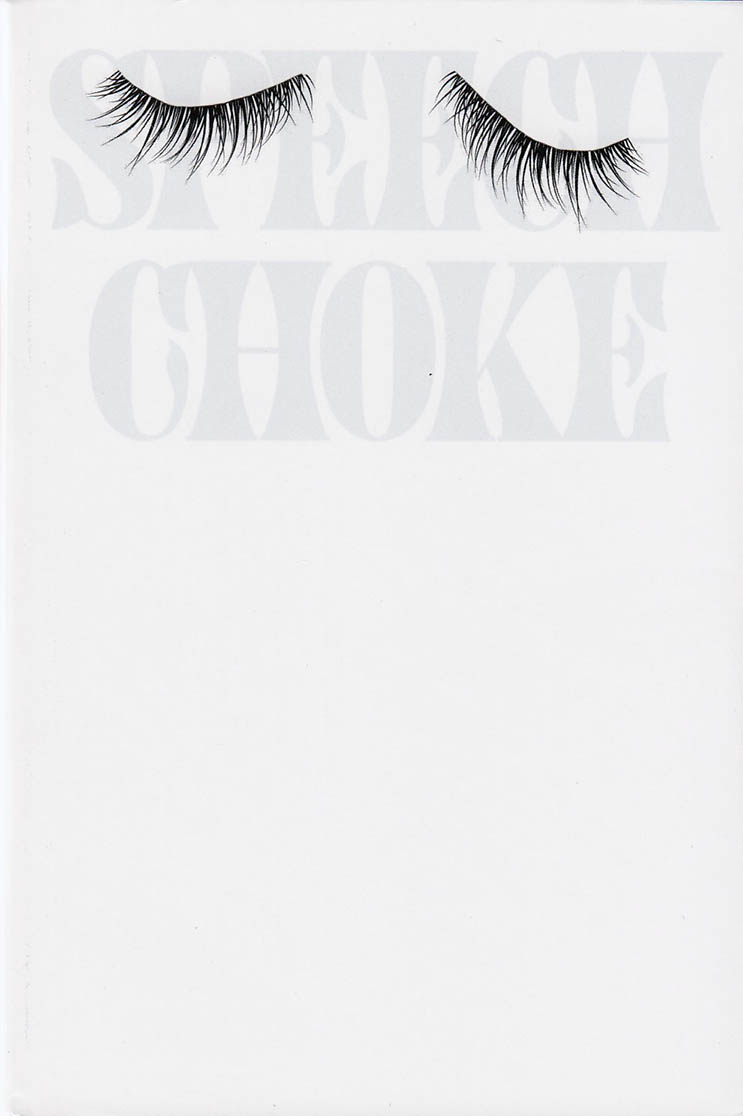
Speech Choke
Speech Choke is a collection of flash fiction written by Helena Grande. It includes letters to imaginary lovers, speculations, absurd official events, digital ghosts, social fears, anxiety, theatrical interludes, and odes to kissing. Speech Choke expresses a feeling of categorical displacement, a state of being unable to communicate verbally and reach the outside world. Speech Choke is an experiment in the interplay between desire and the failed attempts to fulfil it.
Format Paperback | 80 pages
Dimensions 125 x 190 mm
March 2020

Narrative of the Life of Frederick Douglass
Narrative of the Life of Frederick Douglass is an 1845 memoir and treatise on abolition written by famous orator and former slave Frederick Douglass during his time in Lynn, Massachusetts. It is generally held to be the most famous of a number of narratives written by former slaves during the same period. In factual detail, the text describes the events of his life and is considered to be one of the most influential pieces of literature to fuel the abolitionist movement of the early 19th century in the United States. Narrative of the Life of Frederick Douglass encompasses eleven chapters that recount Douglass's life as a slave and his ambition to become a free man.
In the tradition of Suhrkamp Verlag and Penguin Classics, Domain offers a series of elegantly designed pocketbooks, conceived as a starter kit for radical liberatory thought. The pocketbooks are individually crafted with custom book jackets tailored to each individual buyer; every purchase receipt supplying the raw material for each design. The online fulfillment system leverages the graphic language of the US Postal Service for each cover and packaging design.
More info on domainbooks.org

Syncope
Through a series of prayers, invocations, and hymns, Syncope eulogizes those who have perished making Central Mediterranean crossings as well as collects first-hand accounts of those who have survived these perilous journeys. Forces of fate brought errant lives together for a hopeful safe passage and ultimately, linked these lives in their untimely deaths. Syncope attempts to shed some light on these lives, as well as the happenstance of living and dying while trying to cross a border.
Asiya Wadud is the author of Crosslight for Youngbird, published by Nightboat Books in 2018, day pulls down the sky… a filament in gold leaf written collaboratively with Okwui Okpokwasili (2019, Belladonna/ Danspace), and Syncope (UDP 2019). Her collection No Knowledge Is Complete Until It Passes Through My Body (Nightboat Books) is forthcoming in 2020. Asiya teaches poetry at Saint Ann’s School and leads an English conversation group for new immigrants at the Brooklyn Public Library.

Chronology
Taking as its starting point an ultimately failed attempt to translate a Sesotho short story into English, Chronology explores the spaces language occupies in relationships, colonial history, and the postcolonial present. It is a collage of images and documents, folding on words-that-follow-no-chronology, unveiling layers of meaning of queering love, friendship, death, and power. Traveling from Cape Town to the Schomburg Center in New York, Zahra Patterson’s Chronology reveals and revels in fragments of the past-personal and the present-political.
Chronology was awarded the 2019 LAMBDA Literary Award for Lesbian Memoir/Biography.
Zahra Patterson is a writer and educator. Her short fiction has appeared in Kalyani Magazine and The Felt, and a reading of her play, Sappho’s Last Supper, was staged at WOW Café Theatre. She learned postcolonial theory in the bookshops of Nairobi and the bars of Cape Town and has an MFA in Writing from Pratt Institute.
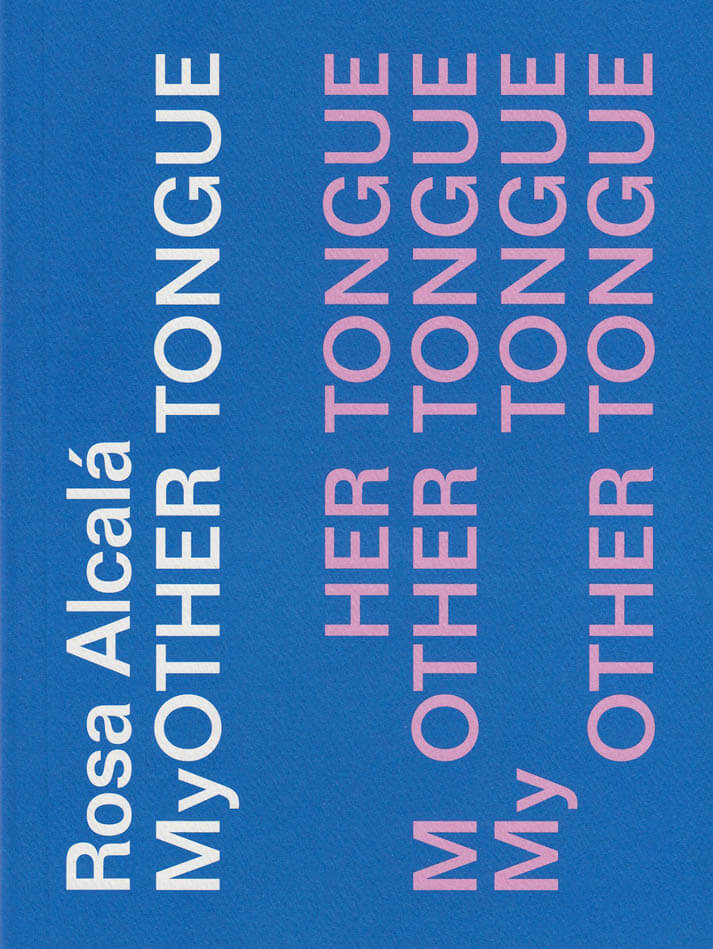
MyOther TONGUE
Rosa Alcalá's new poemario MyOTHER TONGUE begins in the archives of what has yet to be written. She writes with precision and dynamism from the borders between death (of a mother) and birth (of a daughter). What a body produces, and what produces a body: labor, trauma, memory, sacrifice, pain, danger, and language formed both on the tongue and in the culture and the spaces between what can be said and what is missing, the linguistic and existential problem of not having the right words. The darknesses in Alcalá's work emerge from what happens when we don't see ourselves in the languages that both form and destroy us as we labor in this 'dream called money.' Alcalá is a {un}documentarian of the highest order, a {un}documentarian of what history and memory try to erase. Her poems are urgent, demanding and haunting.
—Daniel Borzutzky
Rosa Alcalá is the author of Undocumentaries and The Lust of Unsentimental Waters.

Hotel #5
Jon Auman, Thomas Chadwick and 1 more
Established in 2016, Hotel is a magazine for new approaches to fiction, non fiction & poetry. Hotel features work from established & emerging talent.Hotel provides the space for experimental reflection on literature’s status as art & cultural mediator.

Neotenica
A slippery novel set in the Bay Area of the early aughts, where femininity, race, and class tangle together.
Neotenica is a novel of encounters: casual sex, arranged-marriage dates, cops, rowdy teenagers, lawyers, a Sapphic flirtation, a rival, a child, and two important dogs. At the center of it are Young Ae, a Korean-born ballet dancer turned PhD student, and her husband, a Korean-American male who inhabits an interior femininity, neither transgender nor homosexual, but a strong, visceral femininity nonetheless. This novel is an adrenaline-filled ride sliding across the surface of desire and chance through the quotidian turned playful.
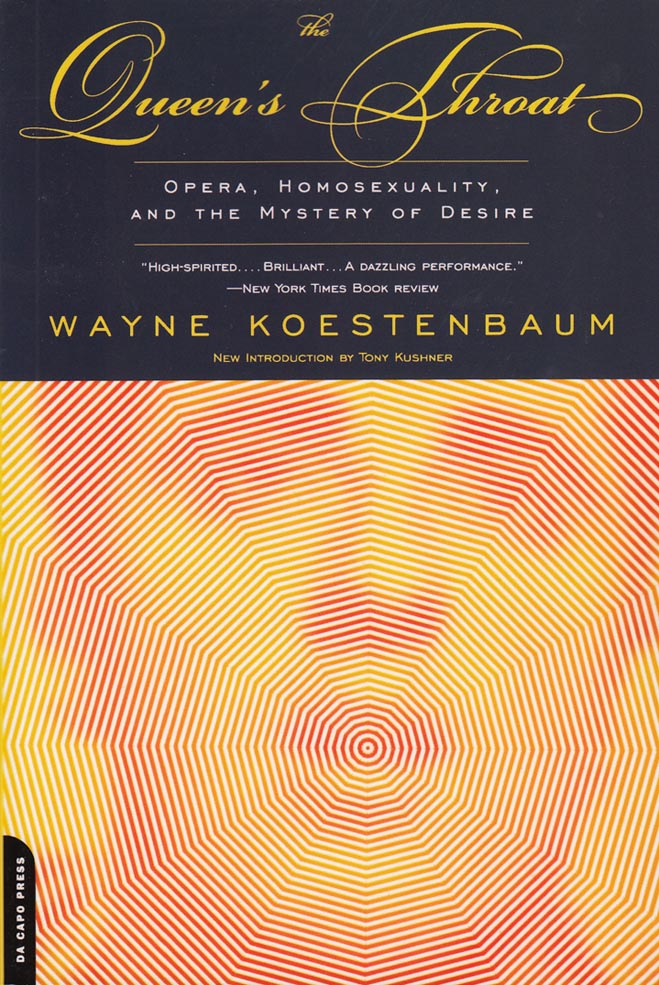
The Queen's Throat
This passionate love letter to opera, lavishly praised and nominated for a National Book Critics Circle Award when it was first published, is now firmly established as a cult classic. In a learned, moving, and sparklingly witty melange of criticism, subversion, and homage, Wayne Koestenbaum illuminates mysteries of fandom and obsession, and has created an exuberant work of personal meditation and cultural history.
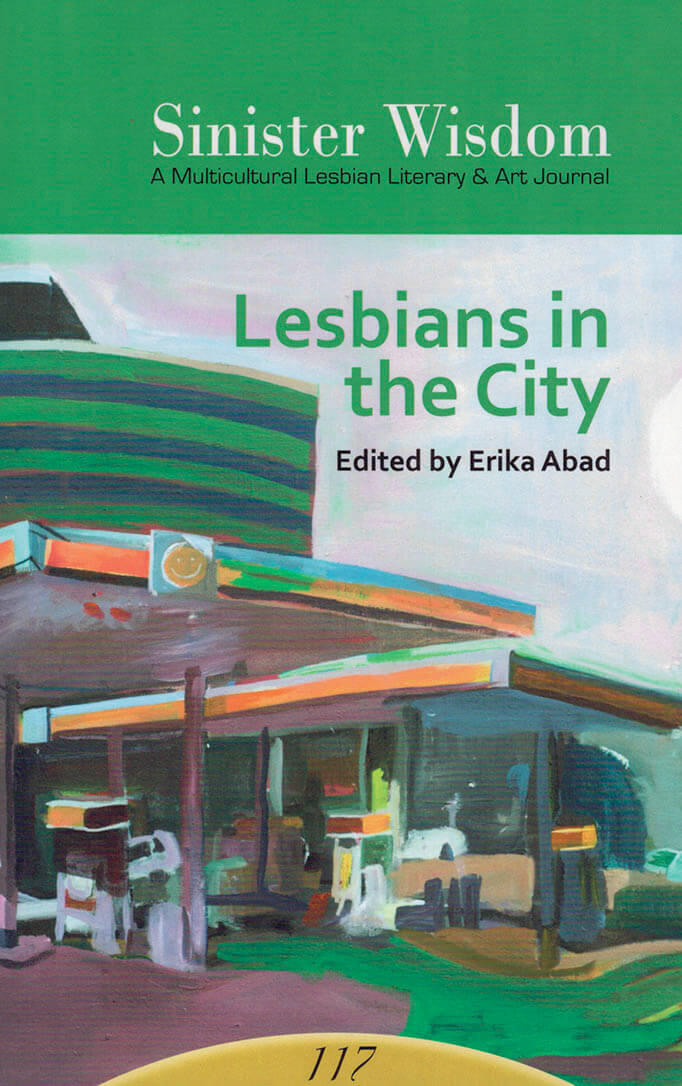
Lesbians in the City
How do lesbians live in the city, whether they live in the city by themselves or within intentional community? How does the city change what being a lesbian means? Sinister Wisdom 117: Lesbians in the City explores these questions—and many more.
The issue features creative work by: Srestha Sen, Carina Julig, Roin Morigeau, t pomar, Rita Mookerjee, Margarita Meklina as well as SPORTS — a selection of work from the Southern Lesbian Feminist Activist Herstory Project, edited by Rose Norman and Merril Mushroom. Plus a great selection of new lesbian writing!
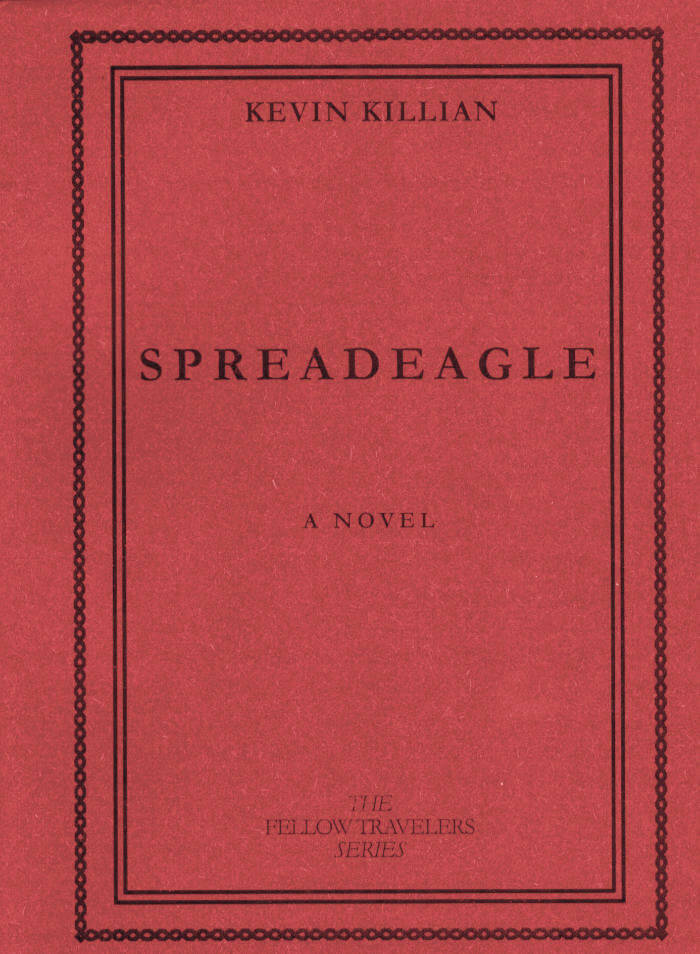
Spreadeagle
New Narrative pioneer Kevin Killian's novel, Spreadeagle, has been two decades in the making. Skating nimbly over the vast surface of pop history through a forest of movie stars, pop sensation and dazzling social technologies, Killian undoes the ties that bind a half-dozen Californian men—Daniel Isham, the powerful, popular gay novelist; Kit Kramer, his insecure activist boyfriend; Daniel's father, Ralph Isham, the world-renowned poet who haunts him in death; Eric Avery, the Duchamp-loving twink who wins Kit's heart; and the shadowy Radley brothers, Adam and Gary, who destroy them all. This is the great gay novel that America has been waiting for.
Publication Studio's Fellow Travelers series extends the pioneering work of Paris-based Olympia Press's Traveller's Companion series of the 1950s and 60s, which published work that had been banned or censored through moralistic prohibition. Our series presents great new work that has been effectively 'censored' by the market. In our day, the market is the definitive censor. The Fellow Travelers series proudly presents great work that the market has not endorsed, but that we believe in.

Two Augusts In A Row In A Row
The seventh book in Publication Studio's Fellow Travelers Series, is a love letter between generations of queer people. Set in New York City in 2001, we follow Phillip—a gender subversive drag king in search of grace and magic—through rich, sad, humorous language that is singularly Shelley Marlow's.
Kevin Killian writes, "I've been dying for something first rate and innovative and have found this in Marlow's writing. Her hero, Phillip/Philomena...is the most enchanting and elusive central character in a novel since Cassandra in Dodie Smith's Capture the Castle. While many have compared Marlow to the late Jane Bowles, I would agree if only there was a loving and empathetic Jane Bowles, and now there is and here is her book."
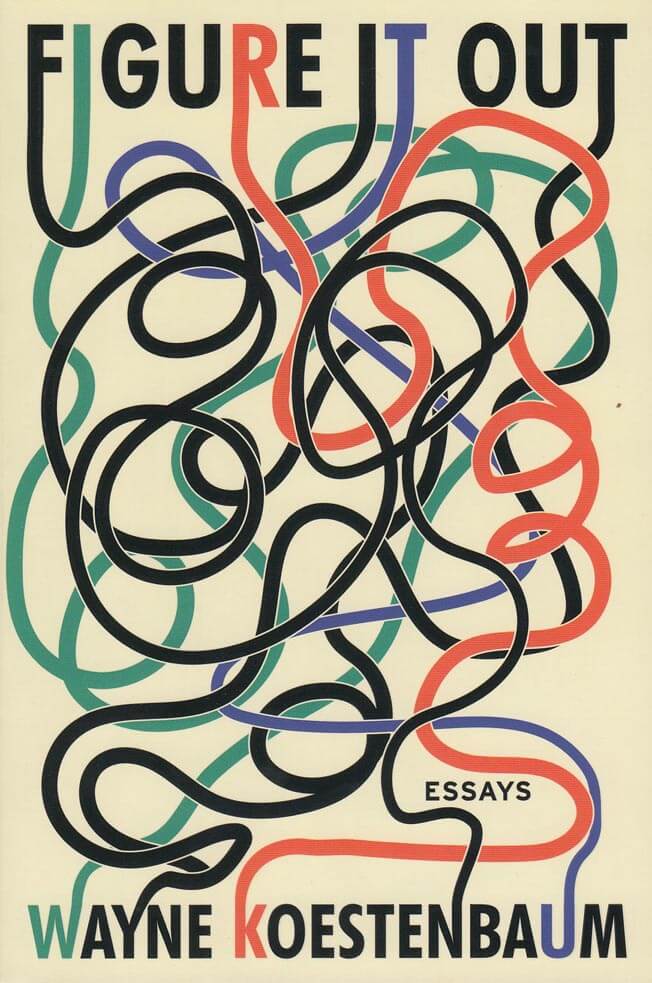
Figure It Out
'Toward what goal do I aspire, ever, but collision? Always accident, concussion, bodies butting together. By collision I also mean metaphor and metonymy: operations of slide and slip and transfuse.' In his new nonfiction collection, poet, artist, critic, novelist, and performer Wayne Koestenbaum enacts twenty-six ecstatic collisions between his mind and the world. A subway passenger's leather bracelet prompts musings on the German word for stranger; Montaigne leads to the memory of a fourth-grade friend's stinky feet.
Koestenbaum dreams about a hand job from John Ashbery, swims next to Nicole Kidman, reclaims Robert Rauschenberg's squeegee, and apotheosizes Marguerite Duras as a destroyer of sentences. He directly proposes assignments to readers: Buy a one-dollar cactus, and start anthropomorphizing it. Call it Sabrina. Describe an ungenerous or unkind act you have committed. Find in every orgasm an encyclopedic richness. Reimagine doing the laundry as having an orgasm, and reinterpret orgasm as not a tiny experience, temporally limited, occurring in a single human body, but as an experience that somehow touches on all of human history. Figure It Out is both a guidebook for, and the embodiment of, the practices of pleasure, attentiveness, art, and play.
May 2020

We Both Laughed in Pleasure
Drawn from Lou Sullivan’s meticulously kept journals, this landmark book records the life of arguably the first publicly gay trans man to medically transition.
We Both Laughed In Pleasure: The Selected Diaries of Lou Sullivan narrates the inner life of a gay trans man moving through the shifting social, political, and medical mores of the second half of the 20th century. Sullivan kept comprehensive journals from age eleven until his AIDS-related death at thirty-nine. Sensual, lascivious, challenging, quotidian and poetic, the diaries complicate and disrupt normative trans narratives. Entries from twenty-four diaries reveal Sullivan’s self-articulation and the complexity of a fascinating and courageous figure.
Edited by: Ellis Martin and Zach Ozma
Introduction by: Susan Stryker

O Fortuna
In 2015, Jacob finds himself wandering the streets, swamps and cemeteries of New Orleans. Through his search for a man named Ignatius, 'O Fortuna' tells the story of his attempt to make a film. We discover the city’s unique atmosphere and meet a bizarre cast of characters who assist Jacob with his uncertain attempts at shooting scenes of DAT LIKWID LAND.
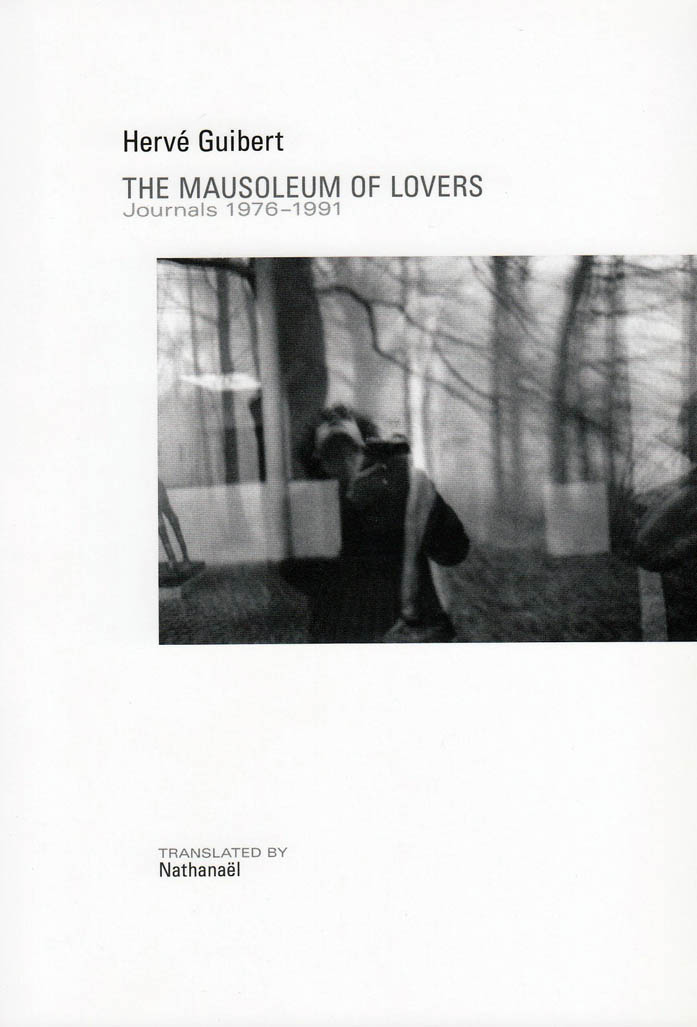
The Mausoleum of Lovers: Journals 1976 - 1991
The Mausoleum of Lovers comprises Guibert's journals, kept from 1976-1991. Functioning as an atelier, it forecasts the writing of a novel, which does not materialize as such; the journal itself — a mausoleum of lovers — comes to take its place. The sensual exigencies and untempered forms of address in this epistolary work, often compared to Barthes' A Lover's Discourse, use the letter and the photograph in a work that hovers between forms, in anticipation of its own disintegration.
HERVÉ GUIBERT (1955-1991) was a French writer and photographer. A critic for Le Monde, he was the author of some thirty books, most notably To the Friend Who Did Not Save My Life, which presents an intimate portrait of Michel Foucault and played a significant role in changing public attitudes in France towards AIDS. NATHANAËL is the author of a score of books written in English or French, including Sisyphus, Outdone. Her translations include books by Édouard Glissant and Danielle Collobert, among others. Nathanaël lives in Chicago.

The Black Condition Ft. Narcissus
The Black Condition ft. Narcissus is preemptive memoir, documenting the beginning of the author's gender transition and paralleling the inauguration of our latest Administration. These poems speak to and from fears holed up inside while contextualizing the cosmic impacts of our political landscape. Ranging from autobiographic melancholy to rigorously meditative, here is a necessary voice to process the world, predicated on unknowable desire and blossoming tragedy.
jayy dodd is a blxk trans femme from Los Angeles. They are a literary & performance artist. their work has appeared / will appear in Broadly, The Establishment, Entropy, LitHub, BOAAT Press, Duende, & The Poetry Foundation among others. they're the Workshops Director for Winter Tangerine, editor of A Portrait in Blues (Platypus Press 2017), author of Mannish Tongues (Platypus Press 2017) & The Black Condition ft. Narcissus (Nightboat Books 2019). their work has been featured in Teen Vogue & Entropy. they are also a volunteer gender-terrorist & artificial intellectual. find them talking trash online or taking a selfie.

Dear Angel of Death
Half poems, half prose, Dear Angel of Death braids intimate and public thinking about forms of togetherness. Is one woman a mother, a person in an artworld, a "black"? What imaginary and real spirits are her guides? The title essay proposes disinvestment in the idea of the Music as the highest form of what blackness "is" and includes many forms: philosophical divergence on the problem of folds for black life, a close reading of Nathaniel Mackey's neverending novel From a Broken Bottle Traces of Perfume Still Emanate, and an impassioned defense-cum-dismissal of contemporary hip hop's convergence with capitalism. - publishers note.
Simone White is the author of DEAR ANGEL OF DEATH (Ugly Duckling Presse), OF BEING DISPERSED (Futurepoem), and House Envy of All the World (Factory School), and the chapbooks Unrest (Ugly Duckling Presse) and Dolly (with Kim Thomas; Q Avenue). Recent poems and prose have appeared in BOMB, New York Times Book Review, Harper's, and Frieze. In 2017, she received the Whiting Award for poetry. She teaches at the University of Pennsylvania and lives in Brooklyn.
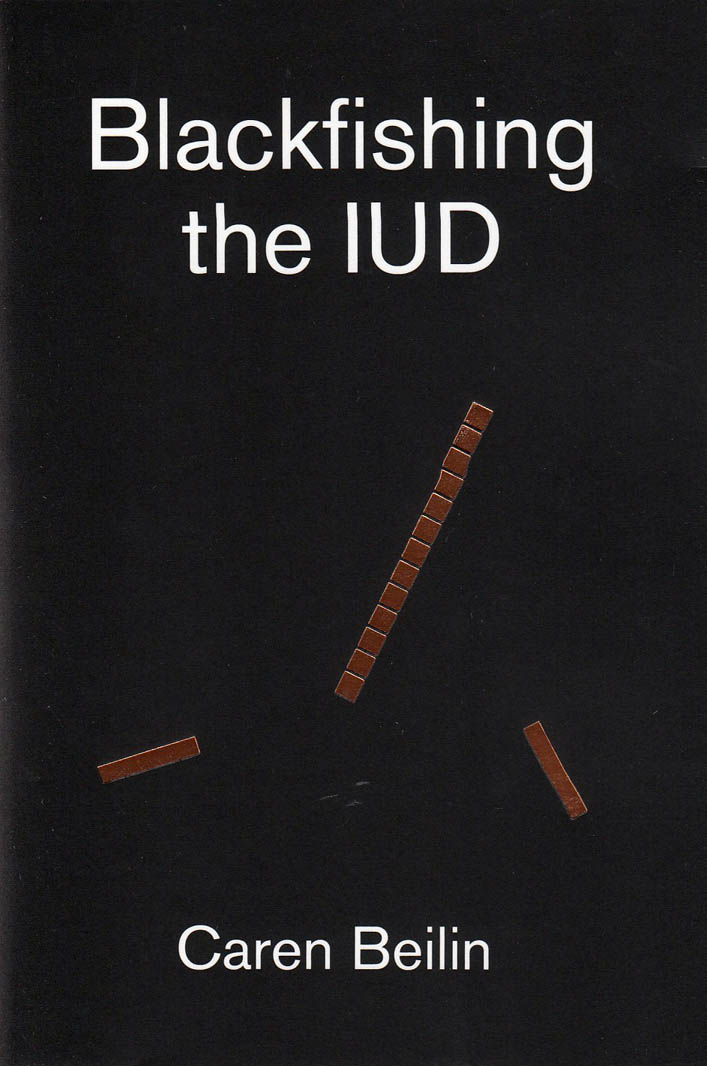
Blackfishing the IUD
Blackfishing the IUD is a daring and demanding memoir by author, Caren Beilin, about reproductive health and the IUD, gendered illness, medical gaslighting, and activism in the chronic illness community. Rhapsodic and unabashedly polemical, Beilin scrutinizes the literary, artistic, and medical history of Rheumatoid Arthritis, as she considers the copper IUD's role in triggering her sudden onset of chronic autoimmunity. As the title makes abundantly clear, the book is an argument that the copper IUD is sickening quite a lot of women—and that we listen first and foremost to women's testimony to begin to resolve it.
As I read I thought of alchemy, Beilin is an alchemist. She transmutes metal, in this case copper, into something that flames and sings and questions and fights. It's a supranatural work that quests after healing but also finds and makes sense in its paradoxes."—Johanna Hedva
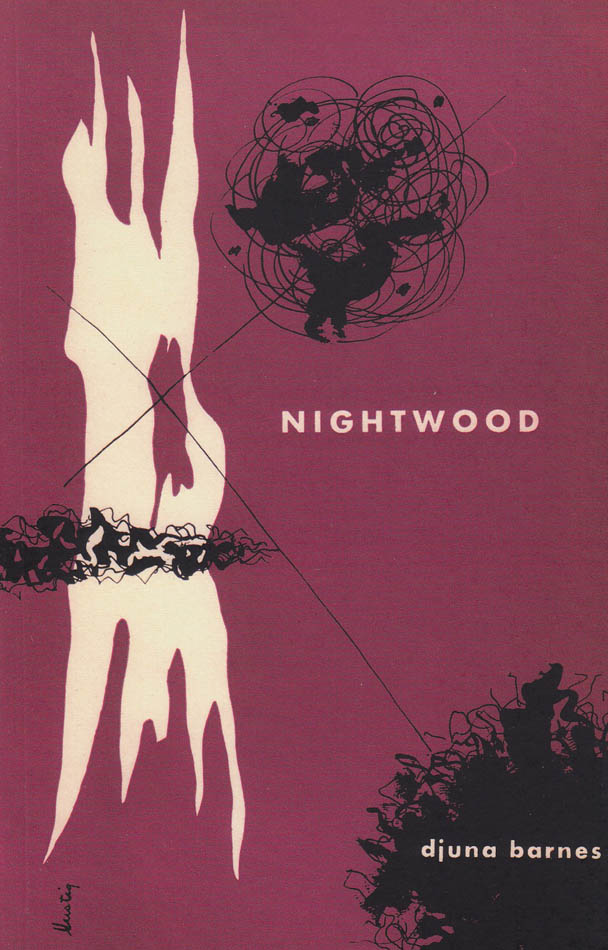
Nightwood
Nightwood, Djuna Barnes' strange and sinuous tour de force, "belongs to that small class of books that somehow reflect a time or an epoch" (Times Literary Supplement). That time is the period between the two World Wars, and Barnes' novel unfolds in the decadent shadows of Europe's great cities, Paris, Berlin, and Vienna—a world in which the boundaries of class, religion, and sexuality are bold but surprisingly porous.
The outsized characters who inhabit this world are some of the most memorable in all of fiction—there is Guido Volkbein, the Wandering Jew and son of a self-proclaimed baron; Robin Vote, the American expatriate who marries him and then engages in a series of affairs, first with Nora Flood and then with Jenny Petherbridge, driving all of her lovers to distraction with her passion for wandering alone in the night; and there is Dr. Matthew-Mighty-Grain-of-Salt-Dante-O'Connor, a transvestite and ostensible gynecologist, whose digressive speeches brim with fury, keen insights, and surprising allusions. Barnes' depiction of these characters and their relationships (Nora says, "A man is another persona woman is yourself, caught as you turn in panic; on her mouth you kiss your own") has made the novel a landmark of feminist and lesbian literature.

This Paradise
A family prepares for Assessment; an au pair in the Caribbean wrestles with duty as a hurricane makes landfall; a game designer aches with bodily longing. Amidst it all, twins, heroines, mothers and rebels play out their lives under the strange grips of technology, governments, corporations and the capricious planet on which we all, in our different ways, just about manage to live.
This Paradise is a rare and beautiful collection of stories about people fleeing towards places or times or situations they hope might be better – trying to outrun their nature, to deny the undeniable. Written with an arresting eye for detail, a rich sense of compassion and a darkly comic understanding of the human psyche, the stories in this volume propose a series of haphazard questions, not least of which is: where do we run to when there’s nowhere left to run?

Wretched Strangers
In response to surges of violent British nationalism and political paranoia around borders, and to related social and ethical crises, JT Welsch and Ágnes Lehóczky have assembled an anthology to mark the vital contribution of non-UK-born writers to this country’s poetry culture. Wretched Strangers brings together innovative writing from around the globe, celebrating the irreducible diversity such work brings to ‘British’ poetry. While documenting the challenges faced by writers from elsewhere, these pieces offer hopeful re-conceptions of ‘shared foreignness’ as Lila Matsumoto describes it, and the ‘peculiar state of exiled human,’ in Fawzi Karim’s words.
The book is published by Boiler House Press to commemorate the anniversary of the June 2016 EU Referendum and in solidarity through struggles ongoing and to come. Proceeds will be donated to charities fighting for the rights of refugees.
Alireza Abiz • Astrid Alben • Tim Atkins • Andre Bagoo • Veronica Barnsley • Khairani Barokka • Leire Barrera-Medrano • Katherine E. Bash • Áine Belton • Caroline Bergvall • Sujata Bhatt • Rachel Blau DuPlessis • Fióna Bolger • Ben Borek • Andrea Brady • Serena Braida • Wilson Bueno • James Byrne • Kimberly Campanello • J.R. Carpenter • Mary Jean Chan • che • Matthew Cheeseman • Iris Colomb • Giovanna Coppola • Anne Laure Coxam • Sara Crangle • Emily Critchley • Ailbhe Darcy • Nia Davies • Tim Dooley • Benjamin Dorey • Angelina D’Roza • Katherine Ebury • Dan Eltringham • Ruth Fainlight • Kit Fan • León Felipe • Alicia Fernández • Veronica Fibisan • Steven J Fowler • Livia Franchini • Ulli Freer • Anastasia Freygang • Kit Fryatt • Monika Genova • Geoff Gilbert • Peter Gizzi • Chris Gutkind • Cory Hanafin • Edmund Hardy • David Herd • Jeff Hilson • Áilbhe Hines • Alex Houen • Anthony Howell • Nasser Hussain • Zainab Ismail • Maria Jastrzębska • Lisa Jeschke • Evan Jones • Loma Sylvana Jones • Maria Kardel • Fawzi Karim • Kapka Kassabova • Özgecan Kesici • Mimi Khalvati • Robert Kiely • Michael Kindellan • Igor Klikovac • Ágnes Lehóczky • Éireann Lorsung • Patrick Loughnane • John McAuliffe • Aodán McCardle • Niall McDevitt • Luke McMullan • Christodoulos Makris • Ethel Maqeda • Lila Matsumoto • Luna Montenegro • Stephen Mooney • Ghazal Mosadeq • Erín Moure • Vivek Narayanan • Cristina Navazo-Eguía Newton • Alice Notley • Terry O’Connor • Wanda O’Connor • Gizem Okulu • Claire Orchard • Daniele Pantano • Astra Papachristodoulou • Fani Papageorgiou • Richard Parker • Sandeep Parmar • Albert Pellicer • Pascale Petit • Adam Piette • Jèssica Pujol Duran • Alonso Quesada • Ariadne Radi Cor • Nat Raha • Nisha Ramayya • Peter Robinson • William Rowe • Lisa Samuels • Jaya Savige • Ana Seferovic • Sophie Seita • Seni Seneviratne • Timea Sipos • Zoë Skoulding • Irene Solà • Samuel Solomon • Agnieszka Studzinska • James Sutherland-Smith • George Szirtes • Rebecca Tamás • Harriet Tarlo • Shirin Teifouri • Virna Teixeira • David Toms • Sara Torres • Kinga Toth • Claire Trévien • David Troupes • Arto Vaun • Juha Virtanen • J. T. Welsch • David Wheatley • Elżbieta Wójcik-Leese • Jennifer Wong • Isaac Xubín • Jane Yeh

Animalia Paradoxa
A virus inflames a woman with mortal desire; a colonial naturalist seeks an impossible specimen; invisible violence stalks a safari and a man out walking enters into a strange shadow dance with a prizefighter. Ranging from taut human drama to phantasmagoria, these stories make rich and strange connections – between ancient and new, human and animal, Africa and Europe, reality and dream. Taken together, in prose of great precision and beauty, the stories in Animalia Paradoxa map the complexities of the human specimen, in all its troubling glory. This is fiction of the highest quality, from one of South Africa’s foremost novelists.
Henrietta Rose-Innes is a South African novelist and short story writer. She is the author of four novels, including Nineveh and Green Lion, which was shortlisted for the 2016 Sunday Times Fiction Prize and won the 2015 Prix François Sommer. Homing, a short story collection, was published in South Africa in 2010. She was the 2008 winner of the Caine Prize for African Writing and runner–up in the BBC International Short Story Award in 2012.
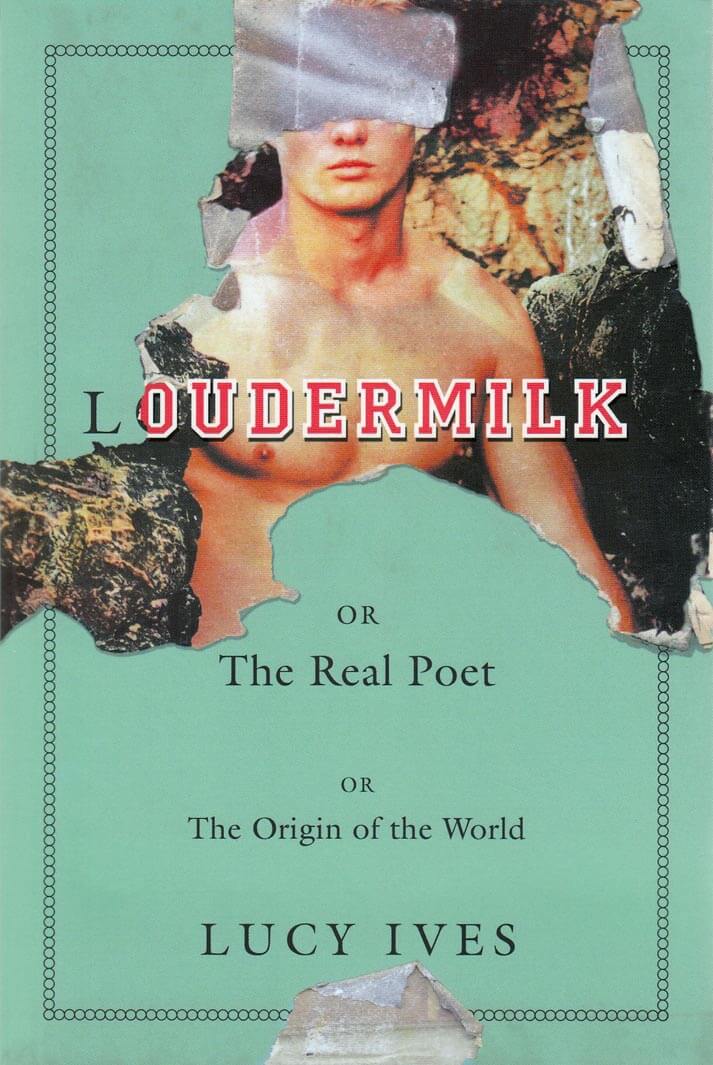
Loudermilk
A tale of two idiots—the handsome, charismatic Troy Augustus Loudermilk and his unassuming, socially anxious friend Harry Rego—who, in the early days of the new millennium, scam their way into a fellowship at the most prestigious creative writing program in the country.
"It's the end of summer, 2003. George W. Bush has recently declared the mission in Iraq accomplished and the unemployment rate is at its highest level in years. Meanwhile, somewhere in the Midwest, Troy Augustus Loudermilk (fair-haired, statuesque, charismatic) and his companion Harry Rego (definitely none of those things) step out of a silver Land Cruiser and onto the campus of The Seminars, America's most prestigious creative writing program, to which Loudermilk has recently been accepted for his excellence in poetry. However, Loudermilk has never written a poem in his life. For all Troy Loudermilk is—and, in the eyes of his fellow students and instructors, he is many things: a cipher to be solved, a hero to be championed, a rival to be disgraced—a poet he most certainly is not." — publishers note
Lucy Ives is the author of the novel Impossible Views of the World. Her writing has appeared in Art in America, Artforum, the Baffler, frieze, Granta, Lapham's Quarterly, Vogue, and at newyorker.com. For five years she was an editor with the online magazine Triple Canopy. A graduate of Harvard University and the Iowa Writers' Workshop, she holds a PhD in comparative literature from New York University. She currently teaches in the Image Text interdisciplinary MFA program at Ithaca College, as well as at NYU's XE: Experimental Humanities & Social Engagement Master's program. She is the recipient of a 2018 Creative Capital - Andy Warhol Foundation Arts Writers Grant.